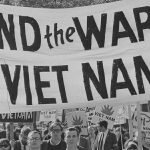By David Lepeska
Salih Hudayar became caught up in the Uighur fight against China at a very young age.
“My uncle had read some book and our neighbour reported him, so police raided our house in the middle of the night and threatened to kill us all,” he said during a recent interview, recalling an incident from 1997 in China’s Xinjiang province.
“They put a rifle to my head when I was four years old. That’s something you never forget. From that time, I didn’t know what East Turkistan was, but I knew we were different from the Chinese. I knew they were different, and they were not good,” he said.
Hudayar’s family moved to the United States a few years later, and, like most Uighurs, he was pleased in 2009 when Turkish President Recep Tayyip Erdoğan, then prime minister, became one of the world’s first leaders to label China’s treatment of Uighurs a “genocide” .
For decades, Turkey has assisted and defended Uighurs, who share many cultural and linguistic traits and are seen as ethnic brethren by Turkish nationalists. The government of Turkey’s ruling Justice and Development Party (AKP) had continued this policy, offering an open door to countless Uighurs in recent years, providing official documentation and even housing.
Thus, many Uighurs were shocked at Turkey’s silence following reports from the United Nations, The New York Times, Human Rights Watch and others detailing China’s treatment of up to a million Uighurs in re-education camps in their home region of Xinjiang.
Hudayar, founder of the U.S.-based East Turkistan National Awakening Movement (ETNAM), figured it was a result of closer economic ties between Ankara and Beijing. “Everything has to do with economics, even politics,” he said. “(Turkish officials) value money over human rights.”
Many observers have linked Turkey’s shift to its troubled economy, and an effort to take advantage of China’s grand Belt and Road Initiative, a massive infrastructure development plan that includes new land and sea routes to Europe. Turkey has been through a tough year economically, and foreign investment, like the $3.6 billion promised by a Chinese bank last year, is crucial.

Following a recent Beijing-sponsored visit to Xinjiang by journalists from several countries along the Belt and Road Initiative, Erdal Kuruçay, a Turkish pro-government reporter for ATV, said that reports on the camps were “misinformation” by “global capitalist and imperialist forces”. “We read the Western media, and we act and take a stance according to the Western media,” he said. “But we saw what a mistake we were making.”
Turkey began welcoming Uighurs in the early 1950s, after Chinese Premiere Mao Zedong invaded the area Uighurs call “East Turkistan,” but Beijing calls “Xinjiang” (“Western Regions”). First, some 1,850 settled in Istanbul and the central city of Kayseri, then another 2,000 followed.
Among them was the leader of the Uighur nationalist movement, Isa Alptekin, who stayed in Turkey until his death in 1995. For decades, Uighurs have found it much easier than other immigrants to obtain papers and even citizenship in Turkey, according to Erkin Emet, professor at Ankara University and secretary of the Munich-based World Uighur Congress
Now all that has changed. Uighurs say they are now less free to practice religion and gather in protest. Hudayar says Ankara has been quietly deporting small numbers of Uighurs, that more than 1,000 Uighurs are currently in jail in Turkey, and the Chinese embassy in Ankara has opened lawsuits against Uighurs in Turkey for terrorism, kidnapping, and other offences. Though his accusations could not be independently confirmed, such actions would dovetail with recent signals from the ruling party.
Last year, a parliamentarian from the pro-Kurdish opposition Peoples’ Democratic Party (HDP) gained support for a proposal to launch a research commission into the Uighurs’ plight, but the motion failed when the AKP voted against it. What is more, favourability toward China has risen among Turkish citizens, increasing from 30 percent to 46 percent in recent months.
Michael Caster, a human rights advocate and author of a book on enforced disappearance in China, believes Beijing boosted economic and political ties with Ankara expressly to halt Turkey’s kindness to Uighurs. “China recognised the history of support from Turkey to Uighur people and wanted to dampen that,” he told Asia Times.
On a visit to Beijing in August 2017, Turkish Foreign Minister Mevlüt Çavuşoğlu vowed to curb anti-China activities in Turkey and eliminate negative media reports on China.
“The Turkish response to the East Turkistan issue has been very troubling,” said Hudayar. “Turkey’s closeness with China is very alarming. A lot of organisers in Turkey don’t even want to talk about it because they don’t want more trouble.

As a result, the Uighur movement has begun to look west. The World Uighur Congress has been based in Germany for years, while several new Uighur organisations have popped up in the United States in recent years, including ETNAM, founded in 2017, and the Uighur Human Rights Project, established in 2016.
“We’re trying to bring the Uighur movement to the U.S., because the U.S. is where things get done,” said Hudayar. “Now, because of increasing relations between Turkey and China, our organisation sees itself more aligned with the U.S.”
In October, U.S. Vice President Mike Pence described the camps as “ a deliberate attempt by Beijing to strangle Uighur culture and stamp out the Muslim faith.” The next month, U.S. Senator Marco Rubio introduced a bill in Congress to denounce China’s crimes against Uighurs and call for the closure of the camps.
Yet like Turkey, few Muslim countries have spoken out against Beijing, despite the fact that it is in large part an attack on religion. “It is puzzling that Muslim governments have raised almost no objections to Chinese Communist Party directives that separate Muslim parents from their children, prohibit Islamic baby names, and ban beards, veils, and fasting during Ramadan,” Robert Carle, professor of theology and Islam at King’s College in New York City, wrote last week .
“Nowhere in the Muslim world has China’s attacks on Islam generated the kind of street protests that we have seen aimed at the West for trivial insults to the faith. For now, Chinese money and investments seem to have bought Muslim compliance.
Carle added that terrorist groups in Pakistan and Afghanistan have made deals with Beijing to refrain from attacking Chinese interests, a development that connects to China’s stance on Xinjiang. Beijing says the Xinjiang camps are vocational centres intended to combat extremism and teach useful skills.
“This protects the human rights of the vast majority, while also saving these people,” China’s foreign minister said in November. “It’s another important contribution of China’s to the global counterterror field.”
Uighur groups have carried out several attacks within China in the past decade, and thousands of Uighurs who have fled China in recent years have ended up fighting in Syria, even joining groups like the Islamic State (ISIS).
But Uighur analysts like Sean Roberts, a professor at George Washington University, have argued that Beijing’s policies have served as a self-fulfilling prophecy, creating a problem where previously there had been none.
Though evidence is scant, Hudayar is convinced that Chinese and Turkish intelligence have helped lure Uighurs out of China to join the conflict in Syria. “Turkey uses them as a proxy, while China can point to them and say, ‘See, Uighurs are terrorists,’” he said. “They’re dying for a useless cause, and they’re playing right into China’s game.”
This issue underscores the importance of activism and engagement in the West. Hudayar said ETNAM was the first Uighur organisation to not portray his people as a persecuted minority, but rather as an occupied state. On its website, ETNAM says it “seeks to restore the independence of East Turkistan.”
To achieve that ambitious goal, ETNAM aims to get the US to recognise East Turkistan as an occupied territory and label what is happening a genocide, then persuade the United Nations to uphold the Genocide Convention, which would involve taking action against Beijing.
“There’s already a 21st century Holocaust,” said Hudayar, who has relatives he has not heard from in months. “God knows how many people have been slaughtered in the last few years.”



